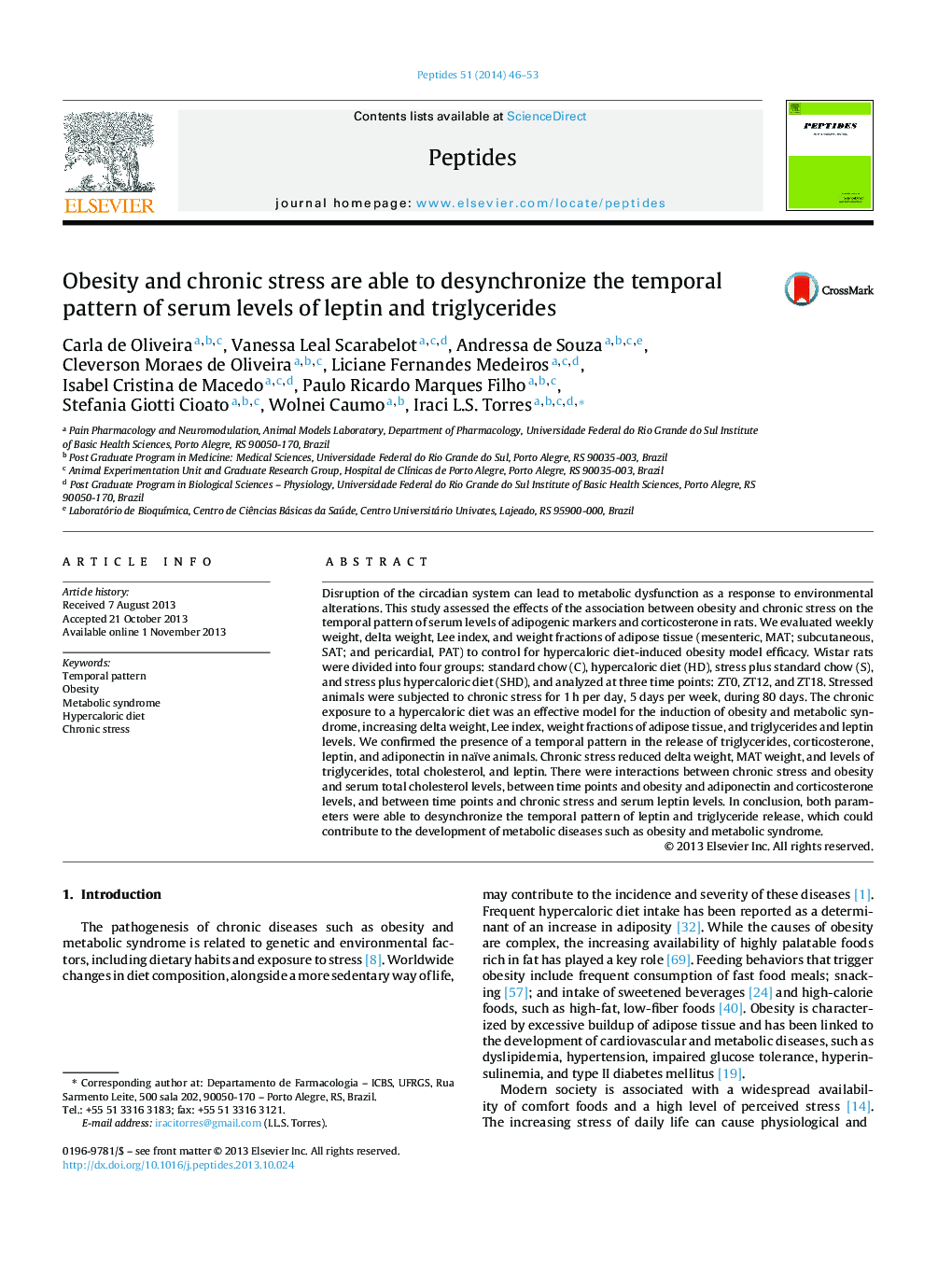| Article ID | Journal | Published Year | Pages | File Type |
|---|---|---|---|---|
| 8348493 | Peptides | 2014 | 8 Pages |
Abstract
Disruption of the circadian system can lead to metabolic dysfunction as a response to environmental alterations. This study assessed the effects of the association between obesity and chronic stress on the temporal pattern of serum levels of adipogenic markers and corticosterone in rats. We evaluated weekly weight, delta weight, Lee index, and weight fractions of adipose tissue (mesenteric, MAT; subcutaneous, SAT; and pericardial, PAT) to control for hypercaloric diet-induced obesity model efficacy. Wistar rats were divided into four groups: standard chow (C), hypercaloric diet (HD), stress plus standard chow (S), and stress plus hypercaloric diet (SHD), and analyzed at three time points: ZT0, ZT12, and ZT18. Stressed animals were subjected to chronic stress for 1Â h per day, 5 days per week, during 80 days. The chronic exposure to a hypercaloric diet was an effective model for the induction of obesity and metabolic syndrome, increasing delta weight, Lee index, weight fractions of adipose tissue, and triglycerides and leptin levels. We confirmed the presence of a temporal pattern in the release of triglycerides, corticosterone, leptin, and adiponectin in naïve animals. Chronic stress reduced delta weight, MAT weight, and levels of triglycerides, total cholesterol, and leptin. There were interactions between chronic stress and obesity and serum total cholesterol levels, between time points and obesity and adiponectin and corticosterone levels, and between time points and chronic stress and serum leptin levels. In conclusion, both parameters were able to desynchronize the temporal pattern of leptin and triglyceride release, which could contribute to the development of metabolic diseases such as obesity and metabolic syndrome.
Related Topics
Life Sciences
Biochemistry, Genetics and Molecular Biology
Biochemistry
Authors
Carla de Oliveira, Vanessa Leal Scarabelot, Andressa de Souza, Cleverson Moraes de Oliveira, Liciane Fernandes Medeiros, Isabel Cristina de Macedo, Paulo Ricardo Marques Filho, Stefania Giotti Cioato, Wolnei Caumo, Iraci L.S. Torres,
